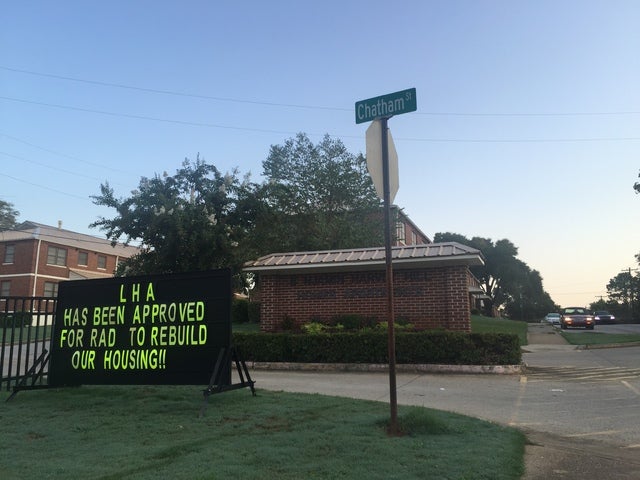LaGrange Housing Authority to raze, rebuild public housing
Published 12:00 am Monday, August 24, 2015

LaGRANGE — In the coming months, the familiar red bricks of the Benjamin Harvey Hill and Lucy Morgan public housing complexes will be no more.
The federal Department of Housing and Urban Development, or HUD, has approved the LaGrange Housing Authority for a new funding model that will allow the LHA to tear down the current apartment homes and replace them with newer, more modern construction.
“Basically, RAD (rental assistance demonstration, a HUD program) allows public housing to invest in our buildings,” said Zsa Zsa Heard, the LHA’s executive director. “There’s a $26 billion maintenance backlog for public housing across the country, so HUD created RAD, and that allows us to invest money in the private sector.”
RAD shifts units from the public housing program to the Section 8 program, which authorizes government payments to private landlords, so that providers may leverage the private sector to make capital improvements, according to HUD.
Many public housing authorities across the country are not funded at the levels required to maintain and repair aging apartments and homes, according to HUD. The authorities are also barred from borrowing money to perform the necessary repairs, and funding fails to keep up with deteriorating living condition. Compounding the problem, low-income residents cannot move without losing their housing assistance.
Now, under the RAD program, the housing authority is placed under what HUD calls a “more stable funding platform,” and has the ability to borrow money from private investors to perform rehabilitation work. After a certain amount of time in the housing authority, tenants may also request a voucher to move into housing outside of the authority, according to HUD.
The Benjamin Hill and Lucy Morgan homes in LaGrange were built in 1953 and have become costly to maintain and repair, Heard explained. She estimated the authority spends upward of $400,000 yearly in upkeep of the two properties. Every time a resident moves out, she said, it can cost as much as $3,000 to perform the maintenance required to upgrade and bring the residence to a more modern standard of living.
The current apartments also have gas stoves — saddling some low-income tenants with an additional utility bill each month. In the new apartments, Heard said, all appliances will be electric and energy efficient, helping to ease the financial burden of some already cash-strapped residents.
Beginning with the Lucy Morgan homes on Borton Street, the housing authority plans to move residents to the Benjamin Hill homes on Whitesville Road as space becomes available through attrition of residents there. For those the housing authority is not able to move to Ben Hill, vouchers will be given to help them find housing in the community, Heard said. Once the 182 apartments at Lucy Morgan have been cleared, the authority plans to completely raze the buildings and build 182 new units. The RAD conversion requires the housing authority to rebuild at least the same number of units that previously existed.
“We’re envisioning flat, level units,” Heard explained. “We want them to be more spread out, almost like a mixture of townhouses. We want to go with the brownstone sort of look like you see in New York City. It will be a complete redesign.”
She estimated the project at the Lucy Morgan homes will begin before the end of the year and will cost somewhere between $13 million and $26 million dollars. The Ben Hill project would begin after Lucy Morgan is completed.
When asked why the spread of the cost estimation was so broad, Heard explained the housing authority is still working with architects and developers to determine exactly what the replacement apartments will look like, which will impact cost. The authority is also hoping the city of LaGrange will make repairs to the outdated sewer system at the Lucy Morgan homes, which could impact cost. RAD, on a federal level, is a cost-neutral program and does not increase HUD’s budget.
The money for the project would come from private investment, HUD loans and state tax credits, Heard said.
Heard said she hopes the project will change the way people feel about public housing, encourage people to take more control over their lives and have pride in their community.
“We really want to change the stigma of public housing,” Heard said. “We want to make it look more like a neighborhood, so that when people drive by, it just looks like any other housing complex.”





